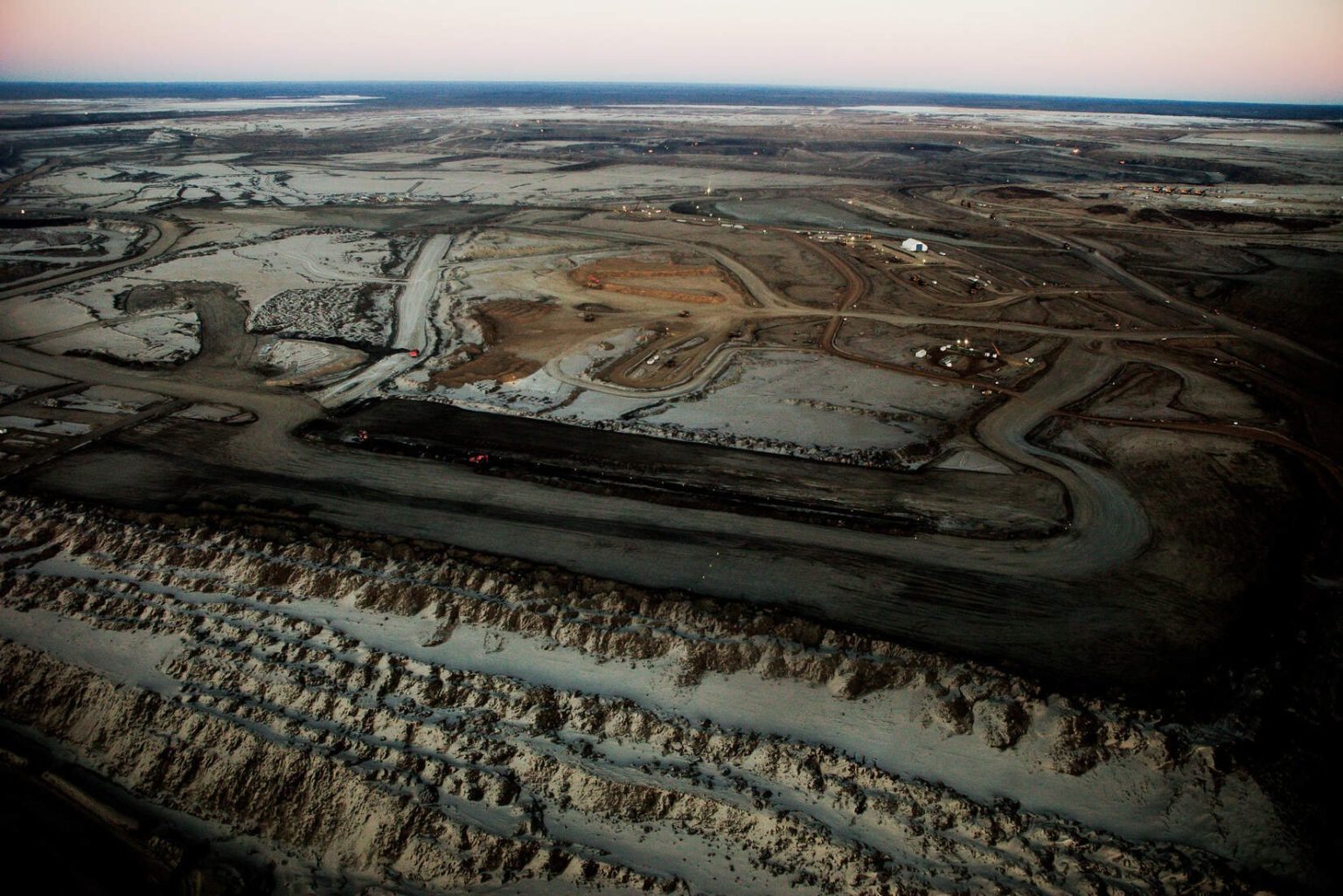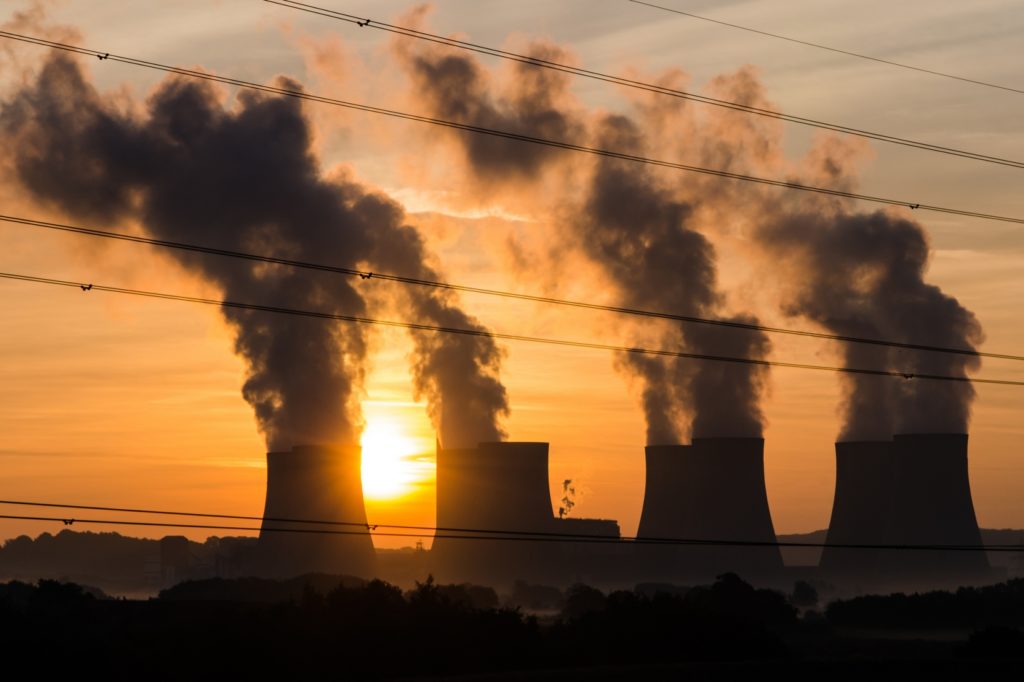While Canadians turned out en masse for large climate protests last week, the country’s oil and gas industry continued its plans to ramp up and export its massive and polluting reserves of tar sands oil, also known as bitumen, to the rest of the world.
Several recent developments in the rail arena are setting up the tar sands industry to realize those plans in a major way.
It’s official. 500,000 people came out into the streets of Montreal today to join the Global #ClimateStrike
They’re part of the 6.6 million who took part all over the world. The momentum is on our side and we are not going anywhere. #FridaysForFuture pic.twitter.com/vfQfU3LqZn
— 350 dot org (@350) September 27, 2019
Increasingly, pipeline capacity constraints, both in the U.S. and Canada, are forcing oil producers to turn to rail in order to export tar sands oil.
The volume of Canadian oil moved by rail in July, the latest month available, increased to 313,283 barrels per day, which is one of the highest months on record.
And while Canadian crude-by-rail volumes are already near record highs, a new U.S.-Canada rail connection has the potential to make trains a significantly bigger channel for exporting tar sands oil.
Alaska-Alberta Rail Connection
Plans are underway to build a new 1,500 mile rail connection from Alberta, the heart of tar sands country, to Alaska’s deepwater ports, which serve as gateways to Asia, in a project its backers are calling “A2A.”
According to Mead Treadwell, A2A‘s chief operating officer and Alaska’s former lieutenant governor, the purpose of this rail connection is, in fact, to move a lot of tar sands oil.
“Our operating plan considers the potential to move a million to a million-and-a-half barrels of bitumen per day, among other shipments,” Treadwell explained to the Journal of Commerce in July. “The long and the short of it is that ports in Alaska’s Cook Inlet have already been exporting oil in one form or another since the early 1960s. Ports in the area export to refineries as far away as Taiwan.”
Considering the current record for Canadian crude-by-rail is just over 350,000 barrels per day, this railway would completely change the scale of the industry, more than doubling it.
Both the Canadian and Alaskan governments have traditionally been very friendly to oil projects, which bodes well for A2A‘s prospects. Alaska Governor Mike Dunleavy, who has downplayed climate change’s effects on the state, while axing its climate response team, recently spoke to a group of Republican activists about his support for the A2A project. In his remarks, he used one of the oil industry’s favorite talking points — that producing oil is all about helping poor people around the globe access energy — in order to attack the philosophy of “those on the left”:
“…those on the left, [their philosophy is] that we don’t want to use this energy anymore. It’s too dirty. It hurts birds. Flowers wither. The list goes on and on and on. So at a time where technology has unleashed our ability to produce cheap energy for some of the poorest people on the planet, these people that purport to be the advocates for the poorest people are going to make it more expensive.”
The company behind the Alaska to Alberta Railway effort has claimed to already have invested $60 million into this project. However, as a recent Anchorage Press column notes, the project’s current price tag is estimated between $13 billion and $15 billion and while it is being marketed in vague terms, its heavy focus on shipping Alberta tar sands and Wyoming coal will likely draw considerable future resistance on climate and environmental grounds.
First Export of Solid Bitumen By Rail
A recurring environmental concern about shipping oil by rail is the potential for derailment to lead to oil spills, which are notoriously difficult to clean up. DeSmog has previously reported on efforts by the rail industry to transform bitumen, a dense hydrocarbon with the consistency of peanut butter, into solid pellets that could be transported in open rail cars the same way as coal.
Currently, bitumen is either diluted with other fossil fuels or lightly processed so that the viscous hydrocarbon flows more easily through pipelines or into rail cars.
However, last week the first shipment of solid bitumen, which was produced using another solidification process known as Bitcrude, was exported to China by the Alberta-based company Melius Energy. Bitcrude heats raw bitumen and then places it in shipping containers. The bitumen then solidifies while in transport and is heated again to unload it from the container when it reaches its destination.
“The most exciting part is once you put it in a container, you can ship it anywhere in the world,” Yuri Butler, manager of logistics and supply chain for Melius Energy, told Reuters. “It opens up new markets for Alberta.”
This is great news!
Alberta bitumen is now en route to International markets after leaving the Port of Prince Rupert this week by shipping container. I’ve been following Bitcrude for awhile and am pleased to see exports off the NW coast of B.C !
— Sonya Savage (@sonyasavage) September 25, 2019
Technologies like Bitcrude do eliminate the explosion risks and large oil spills that have occurred in major tar sands rail disasters, such as the two in Gogama, Ontario, and the one in Boon, Iowa.
Tar Sands Rail Protests Continue
One major appeal of the A2A rail project, which Alaska Governor Mike Dunleavy highlighted, is that unlike in many port cities in the Lower 48, Alaskan communities would be less likely to protest the project. As DeSmog has documented, local communities have successfully blocked many major oil-by-rail expansion efforts in port cities across America — from Baltimore, Maryland, to Vancouver, Washington — which has impeded Canadian efforts to export tar sands oil.
Last week, protesters in Portland, Oregon, held a 60-hour-long event opposing upgrades to an oil terminal that would enable tar sands oil to arrive by train to their city.
Demonstrators finish 60-hour vigil at Zenith Energy in NW Portland (PHOTOS) https://t.co/DcI2kqxeJ2 pic.twitter.com/Ar2104pHd5
— The Oregonian (@Oregonian) September 26, 2019
While Alberta’s tar sands industry has been hurting in recent years due to lower oil prices and stymied pipeline projects, a rail expansion to Alaska that largely bypasses protesters, paired with the technological innovation to transport solid bitumen by rail, are poised to change its prospects in the future.
Main image: Fort McMurray, Alberta – Operation Arctic Shadow Credit: Kris Krüg, CC BY–NC–ND 2.0
Subscribe to our newsletter
Stay up to date with DeSmog news and alerts






